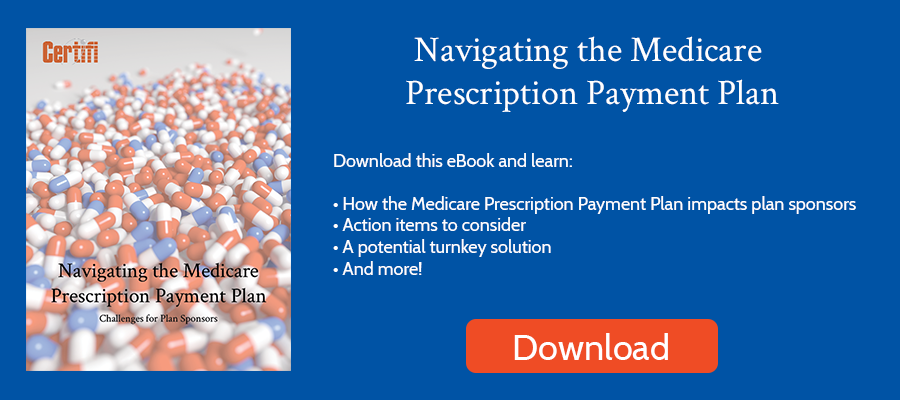On April 5, 2023, the Centers for Medicare and Medicaid Services (CMS) finalized its 2024 Medicare Advantage Final Rule. The rule addresses items ranging from prior authorization to marketing. Generally, the rules take effect on June 5, 2023.
A summary of finalized rules and CMS’ aim when creating the regulations follows:
Utilization Management and Prior Authorization
The Issue
CMS aims for Medicare Advantage beneficiaries to receive timely care. As a result, the 2024 Medicare Advantage final rule made several changes to address the use of prior authorization and utilization management:
Medicare Advantage plans must follow Medicare National Coverage Determinations (NCDs) and Local Coverage Determinations (LCDs) and status when making medical necessity determinations. CMS determines whether Medicare covers a particular service or item through NCDs. They are based on clinical evidence and apply to all Medicare contractors nationally.
By comparison, LCD decisions are made by Medicare Administrative Contractors (MACs) and apply to a specific geographic area. Like NCDs, LCDs affect whether Medicare covers an item or service. Unlike NCDs, these determinations are based on local medical policies and may vary depending on location.
For example, an NCD covers screening mammography for women 40 and older. The NCD mandates that Medicare will cover this service every two years. An example of an LCD would be durable medical equipment, which Medicare covers for beneficiaries in California.
Medicare Advantage plans must post internal coverage criteria and include a public summary when developing medical necessity coverage criteria. This coverage criterion applies when there are no criteria in Medicare statute, regulation, NCD, or LCD. Plans should base that coverage determination on current evidence in widely used treatment guidelines or literature.
Prior authorization approval must be valid for as long as medically necessary. Additionally, plans must provide a minimum 90-day transition period when an enrollee undergoing treatment switches Medicare Advantage plans.
Medicare Advantage organizations must establish a committee led by the Medical Director to review utilization management – including prior authorization – policies and keep current on NCDs, LCDs, and traditional Medicare policies. The committee must meet annually to perform this review. CMS views this committee as similar to the Medicare Advantage Pharmacy and Therapeutics Committee. That committee decides the prescription drugs covered by Medicare Advantage plans, among other responsibilities.
Marketing
The Issue
A number of advertisements, including one featuring NFL legend Joe Namath, and complaints related to third-party marketing organizations led to CMS finalizing rules to clarify how those organizations market Medicare Advantage plans in 2023. The 2024 Medicare Advantage Final Rules aim to strengthen beneficiary protections and improve Medicare Advantage marketing by:
- Notifying enrollees annually in writing that they can opt out of phone calls regarding Medicare Advantage
- Requiring agents to explain the effect of an enrollment selection on coverage
- Requiring medical benefits to be at the top of a Medicare Advantage plan’s Summary of Benefits and in a specific order
- Limiting sales agents so they can call a potential enrollee no more than 12 months after the date that the enrollee first asked for information
- Limiting the requirement to record calls between third-party marketing organizations (TPMOs) and beneficiaries to marketing and enrollment calls.
- Prohibiting a location from hosting a marketing event within 12 hours of an educational event
- Clarifying that the prohibition on door-to-door contact without a prior appointment still applies after the collection of a business reply card or Scope of Appointment
- Prohibiting marketing benefits in a service area where those benefits are unavailable unless it is unavoidable
- Prohibiting marketing about savings available based on a comparison of typical expenses by uninsured individuals, unpaid costs of dually eligible beneficiaries, or other unrealized costs of a Medicare beneficiary
- Requiring third-party marketing organizations to list on marketing materials or mention all Medicare Advantage organizations that they represent
- Requiring Medicare Advantage organizations to create an oversight plan to monitor agent/broker activities and report non-compliance to CMS
- Modifying the third-party marketing organization disclaimer to add state health insurance assistance programs as an option for beneficiaries to obtain additional help. The disclaimer should also state the number of organizations and plans a third-party marketing organization represents
- Prohibiting the collection of Scope of Appointment cards – forms used to document the Medicare insurance products beneficiaries want to learn more about – at educational events
- Limiting the use of the Medicare name, logo, and Medicare card
- Prohibiting the use of superlatives – words like “best” or “most” – in marketing unless the material provides documentation from the current or prior year to support the statement
- Clarifying that the requirement to record calls between third-party marketing organizations and beneficiaries includes virtual connections such as video conferencing and other virtual telepresence methods
- Requiring 48 hours between a Scope of Appointment and an agent meeting with a beneficiary, with exceptions for beneficiary-initiated walk-ins and the end of a valid enrollment period.
Though CMS finalized several marketing rules, CMS also indicated that the changes incur nearly $175,000 in costs for health plans. Those costs are mainly associated with updating plan policy and procedure documents.
Star Ratings Program
The Issue
Medicare Advantage Star Ratings help consumers compare the quality of plans. CMS measures more than 30 different topics in five categories for Medicare Advantage plans, more for those that include Part D coverage. We previously wrote about the future of Medicare Advantage Star Ratings and modifications proposed in December 2022. CMS finalized many of those proposed rules in this final rule.
CMS’ goal is to continue to use the Star Ratings to drive quality improvement and to leverage the program to focus on patient-centric care and improved clinical outcomes. Here’s a recap of some of the rules that CMS finalized:
- A health equity index for 2027 Star Ratings will replace the current reward factor for consistently high performance.
- A reduction in the weight of patient experience/complaints and access measures, and the removal of the Part C Diabetes Care – Kidney Disease Monitoring measure
- The removal of the 60 percent rule for extreme and uncontrollable circumstances
- Correcting an error that resulted from the use of Tukey outlier deletion
There were additional elements of the earlier proposed rule that have not yet been finalized but will be in a later rule. CMS estimated that the net impact of the Star Ratings provisions finalized in this rule will be $6.41 billion in savings over a ten-year period.
Health Equity
The Issue
CMS aims to advance health equity across the Medicare Advantage program. Engaging beneficiaries historically adversely affected by poverty and inequality help CMS achieve that goal.
CMS not only added a health equity index for 2027 Star Ratings in the rule but also finalized the following:
- The current Medicare Advantage regulations ensure health plans provide services in a culturally competent manner and provide examples of populations that may need additional consideration. The 2024 Medicare Advantage final rule adds those with limited English proficiency or reading skills, ethnic, cultural, racial, or religious minorities, those with disabilities, those who identify as lesbian, gay, bisexual, or other diverse orientation, those who are transgender, nonbinary and other gender identities, those who live in rural areas or other areas of deprivation and those affected by persistent poverty or inequality.
- CMS now requires that health plans include cultural and linguistic capabilities in provider directories.
- CMS also addressed the use of telehealth in the final rule, specifically to address poor digital health literacy. The rule ensures that Medicare Advantage plans to create and offer digital health education to enrollees.
- The final rule also requires Medicare Advantage organizations to incorporate one or more health equity activities into their existing quality improvement programs. Examples include improving communication, hiring bilingual staff, community outreach, and creating linguistically or culturally appropriate materials.
Behavioral Health Access
The Issue
CMS aims to improve access to behavioral health services among Medicare Advantage Beneficiaries. Here’s how the final rule impacts that aim:
- Clinical Psychology and Licensed Clinical Social Work will be evaluated in network adequacy reviews. CMS will also make these specialty types eligible for the ten percentage point telehealth credit.
- Modify existing guidance on reasonable wait times to include both primary care and behavioral health
- Include some behavioral health services as emergency services, meaning they may not be subject to prior authorization
Certifi’s health insurance premium billing and payment solutions help healthcare payers improve member satisfaction while reducing administrative costs.



